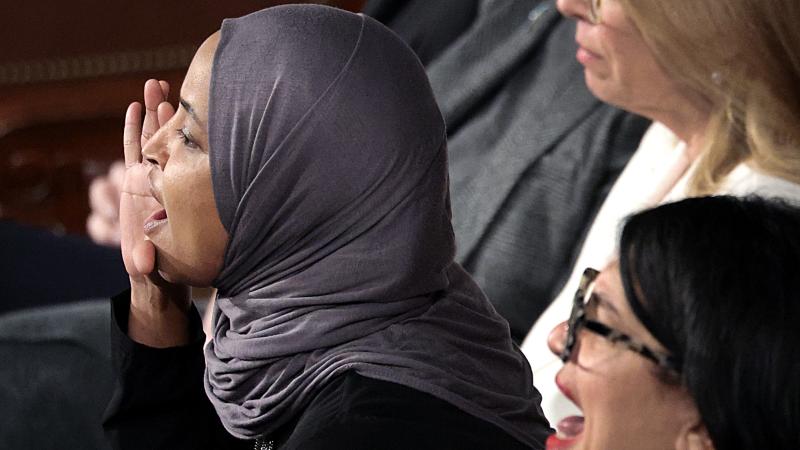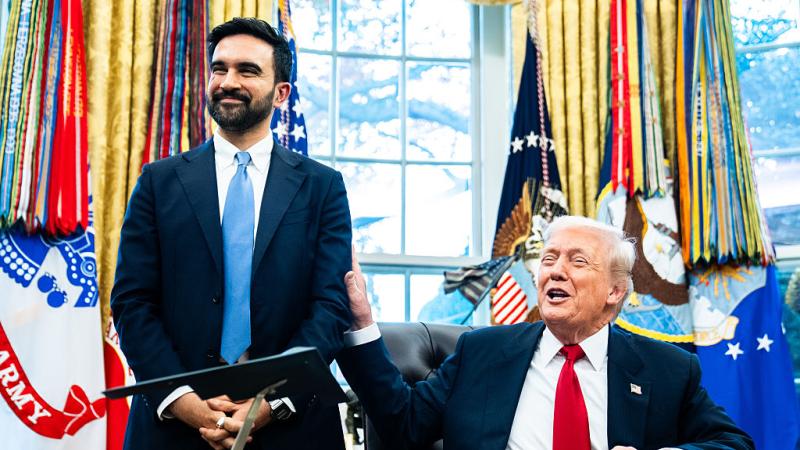Trump Whodunnit: Prosecutors admit key evidence in document case has been tampered with
Legal experts call revelation a “serious violation” as Jack Smith’s team admits it also misled court.
In a stunning admission, Special Counsel Jack Smith’s team is admitting that key evidence in former President Donald Trump’s classified documents criminal case was altered or manipulated since it was seized by the FBI, and that prosecutors misled the court about it for a period of time.
Legal experts told Just the News the revelation could prove to be a serious problem for prosecutors and a violation of court rules to preserve evidence in the state it was seized.
In a new filing Friday, Smith’s team said that the order of documents in some of the boxes of memos that were seized by the FBI from Trump’s Mar-a-Lago estate was altered or jumbled, leaving two different chronologies: one that was digitally scanned and another the physical order in the boxes.
“Since the boxes were seized and stored, appropriate personnel have had access to the boxes for several reasons, including to comply with orders issued by this Court in the civil proceedings noted above, for investigative purposes, and to facilitate the defendants' review of the boxes,” Smith’s team wrote in a new court filing to U.S. District Judge Aileen Cannon.
“There are some boxes where the order of items within that box is not the same as in the associated scans,” the prosecutors wrote.
Smith’s team in a footnote also conceded it had misled the court about the problem by previously declaring that the evidence had remained in the exact state it had been seized.
“The Government acknowledges that this is inconsistent with what Government counsel previously understood and represented to the Court,” the footnote said.
You can read the filing here:
The organization of the documents in storage boxes at Mar-a-Lago is likely to be an important part of Trump‘s defense. His team is expected to argue the documents were stored in the White House in chronological order on the days that Trump received them, and that staff simply boxed them up and sent them to his home without him accessing them or knowing they contained classified information.
Smith’s team tried to downplay the problem and argued it’s not a reason for a delay in Trump’s case.
But several legal experts told Just the News the court filing essentially is an admission of evidence tampering, and could be problematic.
“Prosecutors and investigators should never tamper with or alter evidence in their possession, including the order of documents in a box because one never knows what may become relevant or crucial to a court or jury later in a case,” Harvard Law Professor Emeritus Alan Dershowitz said.
Prominent defense attorney Tim Parlatore, who worked on Trump’s team earlier in the classified documents case but no longer is involved, said ”this admission is stunning on multiple levels.”
He said the revelation “reinforces the incompetence” of prosecutors “in conducting basic criminal investigations and prosecutions that I observed when I was on the team.
“But at a deeper level, the loss of specific document locations is a destruction of exculpatory evidence,” he added. “I went through all of the boxes at NARA and the document order was important because it was clear to us that the boxes had been untouched since leaving the White House.
“For prosecutors who are trying to prove that the defendants knowingly possessed these documents to then destroy the evidence that would undermine that claim is a very serious violation,” he added.
Smith’s team tried to downplay the problem, offering several explanations for how the documents and their order could’ve been scrambled since the government took possession of the boxes.
“There are several possible explanations, including the above-described instances in which the boxes were accessed, as well as the size and shape of certain items in the boxes possibly leading to movement of items,” the prosecutors wrote. “For example, the boxes contain items smaller than standard paper such as index cards, books, and stationary, which shift easily when the boxes are carried, especially because many of the boxes are not full.”
The alteration of evidence has been an issue in earlier political scandals and prosecutions in Washington.
Erasure of an 18 1/2 minute segment of Richard Nixon’s White House tapes became a very important aspect of the Watergate scandal.
The Iran-Contra scandal exploded during the Reagan years with the revelation that documents were shredded before they could be obtained by investigators.
The Hillary Clinton classified email scandal became more complicated in 2015 with the revelation that her team used a "Bleach Bit" program to erase emails on her secret computer server, and had email devices destroyed.
















